
Everway is a fantasy role-playing game first published by Wizards of the Coast under their Alter Ego brand in 1995. Its lead designer was Jonathan Tweet. Marketed as a "Visionary Roleplaying Game", it has often been characterized as an innovative piece with a limited commercial success. Wizards later abandoned the line, and Rubicon Games purchased it, and published several supplements. The line was sold again to Gaslight Press in February 2001. The line is currently with The Everway Company, which is working on both a Silver Anniversary Edition and 2nd Edition.

A gamemaster is a person who acts as an organizer, officiant for regarding rules, arbitrator, and moderator for a multiplayer role-playing game. They are more common in co-operative games in which players work together than in competitive games in which players oppose each other. The act performed by a gamemaster is sometimes referred to as "Gamemastering" or simply "GM-ing".

The Hero System is a generic role-playing game system that was developed from the superhero RPG Champions. After Champions fourth edition was released in 1989, a stripped-down version of its ruleset with no superhero or other genre elements was released as The Hero System Rulesbook in 1990. As a spinoff of Champions, the Hero System is considered to have started with 4th edition, rather than on its own with a 1st edition. However, the first three editions of the game are typically referred to as Champions, rather than the Hero System, as the game for its first three editions was not sold as a universal toolkit, instead largely focusing on superheroes.

Marvel Super Heroes (MSHRPG) is a role playing game set in the Marvel Universe, first published by TSR as the boxed set Marvel Super Heroes: The Heroic Role-Playing Game under license from Marvel Comics in 1984. In 1986, TSR published the Marvel Superheroes Advanced Game, an expanded edition. Jeff Grubb designed both editions, and Steve Winter wrote both editions. Both use the same game system.
A storytelling game is a game where multiple players collaborate on telling a spontaneous story. Usually, each player takes care of one or more characters in the developing story. Some games in the tradition of role-playing games require one participant to take the roles of the various supporting characters, as well as introducing non-character forces, but other systems dispense with this figure and distribute this function among all players.
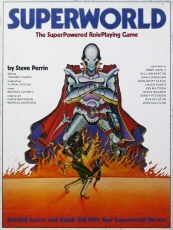
Superworld is a superhero-themed role-playing game published by Chaosium in 1983 that uses the generic Basic Role-Playing rules system. The game began as just one part of the Worlds of Wonder product before being published as a stand-alone game. In competition against other well-established and popular superhero games, Superworld never found an audience, and was discontinued after only three supplements were published for it.

Champions is a role-playing game published by Hero Games designed to simulate a superhero comic book world. It was originally created by George MacDonald and Steve Peterson in collaboration with Rob Bell, Bruce Harlick and Ray Greer. The latest edition of the game uses the sixth edition of the Hero System, as revised by Steve Long, and was written by Aaron Allston. It was released in early 2010.

Heroes Unlimited is a superhero role-playing game written by Kevin Siembieda and first published by Palladium Books in 1984. The game is based upon the Palladium Books Megaversal system and is compatible with other games that use the Palladium system.
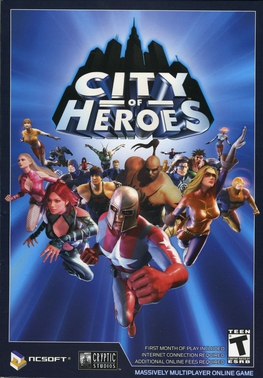
City of Heroes (CoH) was a massively multiplayer online role-playing game which was developed by Cryptic Studios and published by NCSOFT. The game was launched in North America on April 28, 2004, and in Europe by NCsoft Europe on February 4, 2005, with English, German and French servers. In the game, players created super-powered player characters that could team up with others to complete missions and fight criminals belonging to various gangs and organizations in the fictional Paragon City.

Mutants & Masterminds is a superhero role-playing game written by Steve Kenson and published by Green Ronin Publishing based on a variant of the d20 System by Wizards of the Coast. The game system is designed to allow players to create virtually any type of hero or villain desired.

My Life with Master is an independently published role-playing game written by Paul Czege and published by Half Meme Press . My Life with Master is a game about role-playing the servants or minions of an evil Master or Mistress. The game won several awards, and reviewers recognized it as well-written.

Savage Worlds is a role-playing game written by Shane Lacy Hensley and published by Pinnacle Entertainment Group. The game emphasizes speed of play and reduced preparation over realism or detail. The game received the 2003 Origin Gamers' Choice Award for best role-playing game.

DC Heroes is an out-of-print superhero role-playing game set in the DC Universe and published by Mayfair Games. Other than sharing the same licensed setting, DC Heroes is unrelated to the West End Games DC Universe or the more recent Green Ronin Publishing DC Adventures game.
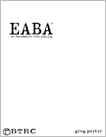
The End All Be All game system, commonly known as EABA and pronounced "ee-buh", is a role-playing game system from Blacksburg Tactical Research Center (BTRC). It is a generic gaming system designed to adapt to any imaginary gaming environment. It was created by Greg Porter in 2003. The game cites the Hero System, GURPS and Call of Cthulhu as influences in its development.
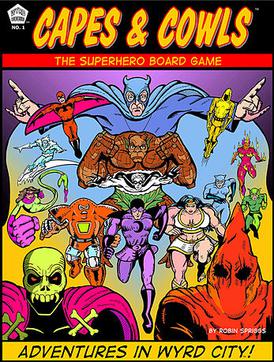
Capes & Cowls: Adventures in Wyrd City is an expandable "book-in-a-box" superhero board game based on Capes & Cowls: The Wyrd City Chronicles by Robin Spriggs. Prior to its commercial release by Wyrd House Press in 2006, the game had been in private circulation, according to publisher Jazz Lieberman, “for well over a decade.”

Capes, Cowls and Villains Foul is a pen and paper roleplaying game about comic book style superheroes and their adventures, developed and published by Parsons, Kansas-based Spectrum Games. It officially debuted in the form of an illustrated 13-page PDF document released for free, called the Quickstart Preview in 2010. A full rulebook was released in 2012. It was written by Barak Blackburn, and uses a significantly modified version of a rules system that was first introduced in Cartoon Action Hour: Season 2 in late 2008.
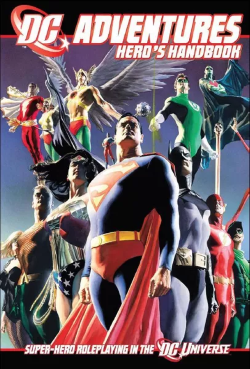
DC Adventures is a superhero role-playing game published by Green Ronin Publishing in 2010 that is set in the DC Comics superhero universe. It uses the same game system as Green Ronin's third edition of Mutants & Masterminds.

Sentinels of the Multiverse is a cooperative card game published by Greater Than Games and released at Gen Con 2011. Players control a team of comic book-style heroes battling a villain. Each player controls one or more heroes, while a villain and environment deck each run themselves. A given game includes 3 to 5 heroes, 1 villain and 1 environment, which can be mixed and matched to create a number of different scenarios. The core game comes with 10 heroes, 4 villains, and 4 environments.

Marvel Heroic Roleplaying is the fourth role-playing game set in the Marvel Universe published by Margaret Weis Productions under license from Marvel Comics. It uses the Cortex Plus system. The first volume was published in early 2012. In early 2013, Margaret Weis Productions announced that they would not be renewing their license and publication ceased.
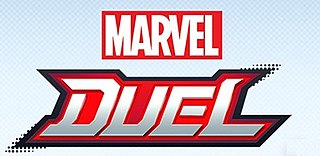
Marvel Duel is a mobile collectible card game developed and published by NetEase in collaboration with Marvel Entertainment. It is a multiplayer game available for both Android and iOS, in which the players battle each other using cards representing characters from the Marvel Universe. Like NetEase's other Marvel title Marvel Super War, this game is not a global release and is only available in select countries, launching in Thailand, Indonesia, Philippines, and Malaysia and later expanding to Singapore, Taiwan, Hong Kong and Macau. The game is free-to-play with a game shop that sells packs and cards in addition to various cosmetic items.



















